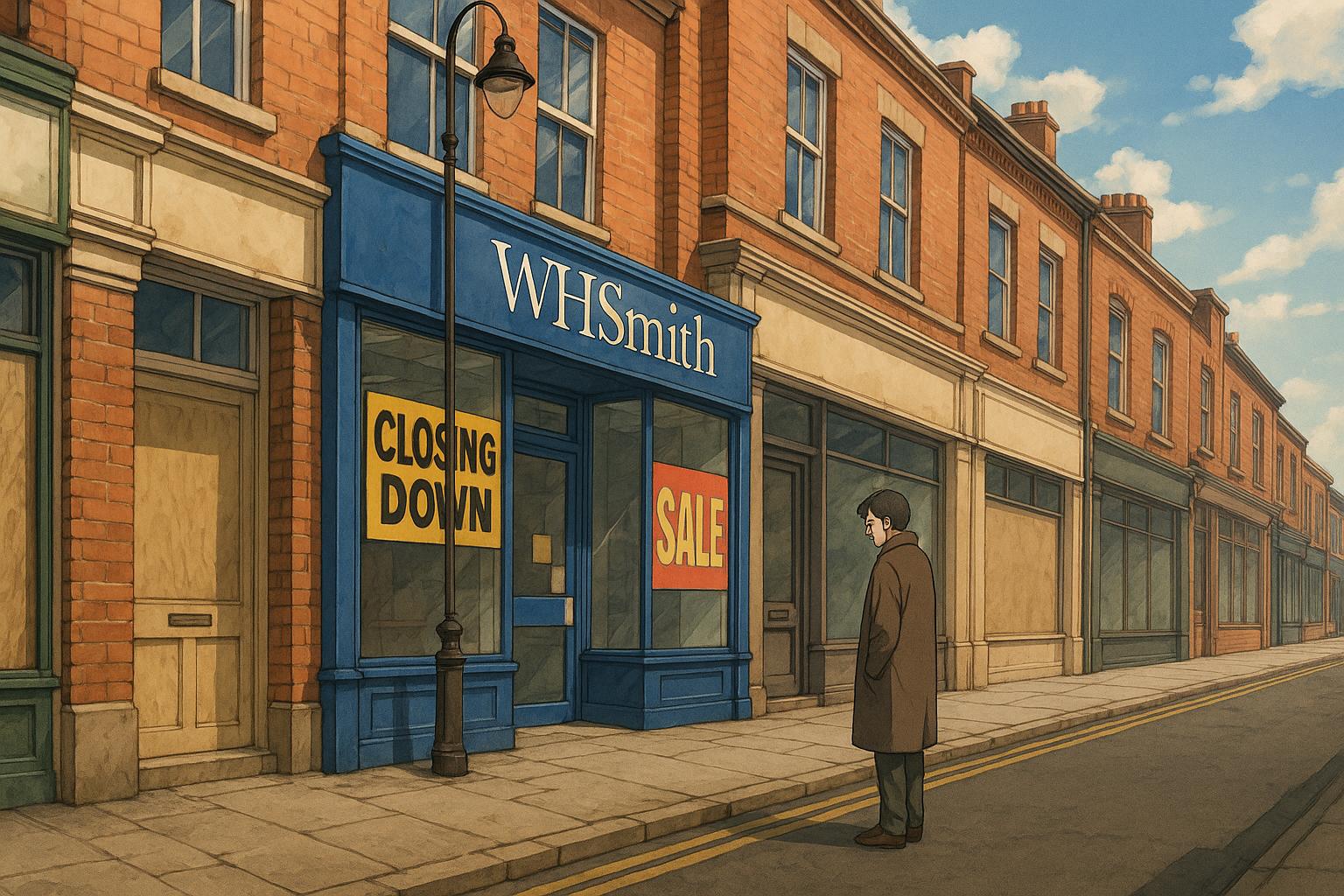The closure of WH Smith's long-standing branch in Doncaster's Frenchgate shopping centre marks a poignant moment for local residents and a significant shift in the retail landscape of the UK. Following the store's closure, which took place recently, many community members voiced their discontent, with shoppers lamenting the dwindling options available in the centre, echoing sentiments of despair. One local resident articulated the sentiment succinctly: “The town might as well shut down; hardly anywhere open – so sad.”
WH Smith, with a history spanning over 230 years in Britain, is now undergoing a significant transformation. The company recently announced the sale of its high street business to Modella Capital in a deal valued at £76 million. Approximately 480 stores, including the Doncaster location, will be rebranded under the new name TG Jones. Industry analysts note that this shift underscores a broader trend where traditional high street retailers are grappling with changing consumer behaviours and the decline of foot traffic in town centres.
The strategic pivot towards travel retail has proven financially fruitful for WH Smith, which now derives a remarkable 85% of its profits from its operations in airports, railway stations, and other transit locations across 32 countries. Chief executive Carl Cowling emphasized this transition, stating, “Given our rapid international growth, now is the right time for a new owner to take the High Street business forward.” This move aligns with the company’s goal of streamlining its focus solely on travel-related markets, where it has witnessed notable growth in recent years, particularly following the easing of travel restrictions.
Political representatives, such as Doncaster Central MP Sally Jameson, have expressed their dismay over the closure. Jameson has been liaising with the Post Office in an effort to find a new host retailer that can offer essential services within the shopping mall, highlighting the community’s reliance on such local amenities to stay vibrant. The sentiment of loss is palpable; as one customer noted, the absence of WH Smith has left a “big hole” in the shopping centre, a feeling echoed by many who visited the location regularly.
The ramifications of this closure extend beyond the shopfronts; it is emblematic of a troubling trend affecting many high streets across the UK. With WH Smith's departure, other regions like Halstead and Woolwich have also seen the shuttering of these historic establishments, raising concerns about the future of local economies reliant on foot traffic.
WH Smith now plans to retain its travel business, yet community members are left pondering the changing face of their local high streets. Critics argue that the dwindling number of high street shops diminishes the unique character of towns, while others worry about the long-term viability of local economies in the absence of these established brands.
As WH Smith rebrands its remaining stores and removes its presence from more towns, the focus will be on adapting to new retail environments that reflect shifting consumer habits. The echoes of Doncaster, alongside numerous other British towns, resonate with the understanding that they are witnessing not just the end of a local brand, but a transformative moment in the history of UK retail. The future of these spaces remains uncertain, and the community's calls for revitalisation become ever more urgent.
Reference Map:
- Paragraph 1 – [1], [2]
- Paragraph 2 – [1], [4], [5]
- Paragraph 3 – [3], [6], [7]
- Paragraph 4 – [1], [2], [3]
Source: Noah Wire Services
